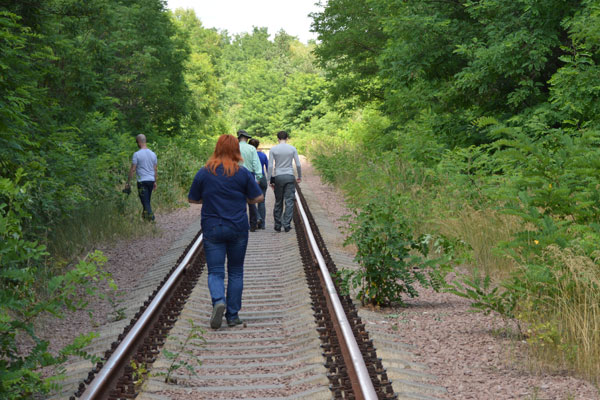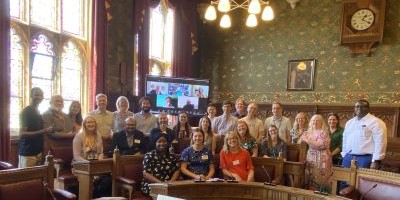 white on transparent (1).png)
Leverhulme Centre for Anthropocene Biodiversity
World-leading interdisciplinary research into the complexities of biodiversity change in the Anthropocene, funded by the Leverhulme Trust
Human activities have caused the world’s physical and biological processes to change so significantly that we increasingly think of Earth as having entered a new geological epoch – the ‘Anthropocene’.
This disruption has resulted in the extinction of many species, but the Anthropocene is also a time of biological gains; it may eventually be considered one of the greatest boosts to biological diversity in history. We aim to understand the causes and consequences of biodiversity gains and losses, and inform and influence how society responds.
Research programmes

Biodiversification
Understanding how human impacts and biological processes underpin the gains and losses of biodiversity and ecosystems.

Philias and phobias
Identifying the causes and consequences of varied human attitudes to the growth and loss of biodiversity.

Utility
Establishing the gains and harms people experience from biodiversity altered by humans and novel ecosystems.

Moulding the future
Integrating knowledge to foster further gains, without compromising human wellbeing or risking ‘past’ biodiversity.
People
Our Centre represents an interdisciplinary collaboration between multiple departments at the University of York, the University of Sherbrooke, University College London and the University of St Andrews.
Our expertise is wide-ranging and our researchers consider the changing relationship between humanity and the natural world, and how we might maintain and develop a sustainable Earth.
Professor Lindsey Gillson - Director of the Leverhulme Centre for Anthropocene Biodiversity
Cross-cutting themes

Change is a defining feature of the Anthropocene, requiring agile and creative adaptations. LCAB research helps to leverage human ingenuity to create, conserve, restore and adapt social-ecological systems that safeguard biodiversity, while meeting the needs of people in ways that are fair and just.
Professor Lindsey Gillson, Director of the Leverhulme Centre for Anthropocene Biodiversity
Latest news







